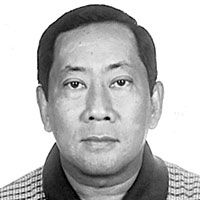Technology will help clean up our seas

Call it timely that Bank of the Philippine Islands (BPI) had a media roundtable discussion on Sustainable Energy Finance (SEF) with three important speakers, Eric Roberto Luchangco, head of BPI’s corporate credit products; Jo Ann Eala, vice president of sustainable energy finance and specialized lending, and David Leechiu, CEO of Leechiu Property Consultants. As VP Eala pointed out “Going green can be very profitable.” Indeed, technology has done a lot in improving our environment, and those who wish to become green now BPI provides them with the financing to make sure that being green is a profitable business. This is why their theme is “Turn your business Green to Gold.”
VP Eala gave the BPI headquarters building in Makati as a great example. Their studies showed that if they replace their cooling system to a new modern air-conditioning system, BPI would expect a savings in energy cost up to P700,000 per month. So they went ahead with this project and when it was finished, BPI saved P1 million per month! Call it unexpected, but true, to a point that Meralco had the building inspected for something could be wrong with their metering system. But this is technology done right and Meralco realized what BPI has done saved them energy.
It was then that VP Eala told us that World Wide Fund for Nature (WWF) showed that a few important things that Cebu needs to watch is saltwater intrusion in the underground water supply of Cebu City due to heavy extraction blamed on the concentration of businesses within the city. We were told of the approval of the Philippine Green Building Code that was enacted in 2016, yet even DPWH admitted that so many people didn’t know about the creation of this law.
Meanwhile Eric Luchangco said, “BPI enables organizations to be self-sufficient in producing energy, and be efficient in their electricity consumption and business operations by financing their projects. We want to help our clients manage their business by turning revenues and at the same time, becoming sustainable through energy saving, low carbon, and environment friendly structures.”
When asked about what are the renewable energy projects, they listed biogas, biomass, geothermal, solar, hydro, ocean and wind. We also talked about my advocacy to clean Manila Bay and apparently they have read what I wrote that there are already groups helping out in cleaning the Pasig River. They pointed to me to check out You Tube, which had a video on the Plastic Bank, which they said could be of great use to clean up the bay.
Apparently there’s a group that calls themselves a “Plastic Bank.” It plans to create a currency for the world’s poor using plastic trash as its main product. As their story goes, “The company, formed in 2013, pays people to collect plastic waste and take it to recycling markets in Haiti and, more recently, the Philippines. (There are plans to expand to Brazil and Indonesia, followed by South Africa, the Vatican, Panama and India). Collectors can receive payment in money, of course, but they also can draw on the credit to buy stuff, like cook stoves or fuel, at special stores.”
Indeed, if garbage plastic becomes like a currency, then people would go to great extremes to fish these trash out of the water and profit from it. We ended up talking about what technology is available in cleaning up the rivers and esteros. But the most interesting I have ever seen is the Ocean Cleanup in San Francisco Bay area that has an ambitious plan to clean up the Bay Area. Lonneke Holierhoek, the CEO wants to reduce by as much as 90 percent of floating plastic in the oceans by 2040, which is quite achievable with their new technology.
If you looked into their technology in You Tube, I think we in the Philippines should do our share and find ways to bring this technology to start cleaning up Manila Bay. I also learned about the Great Pacific Garbage Patch, which stretches from Hawaii to California, which is literally a plastic garbage island the size of Texas. Texas is America’s biggest state and there is a plastic island that has grown as America’s island neighbor and there is a group that plans to clean up this great big plastic trash!
I found out that 24-year-old Boyan Slat from the Netherlands was the CEO of Ocean Cleanup, the Dutch foundation developing technologies to rid the oceans of plastic in just five years by installing U-shaped screens floating three meters down that doesn’t disturb marine life. In short the whole world has made cleaning up the oceans as their mission/advocacy and I dare say that we Filipinos should join this great crusade that human beings developed to rid the oceans of plastic which humans also developed. So we hope that Filipinos would wake up to the reality that we also have a job to do here.
* * *
Email: [email protected]
- Latest
- Trending




























